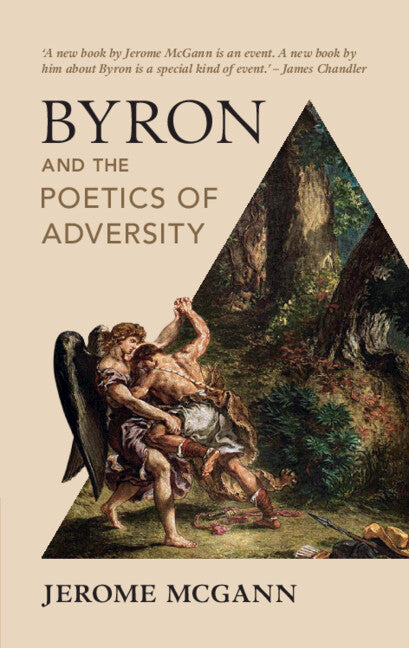Byron and the Poetics of Adversity
Author(s): Jerome McGann
Couldn't load pickup availability
🚚 Please note we can only ship within the UK.
FREE delivery on books (excluding sale).
Delivery for other items is £1.50 - £4.50, calculated at checkout.
T&Cs apply.
Free click & collect on all orders.
A long line of traditional, often conservative, criticism and cultural commentary deplored Byron as a slipshod poet. This pithy yet aptly poetic book, written by one of the world's foremost Romantic scholars, argues that assessment is badly mistaken. Byron's great subject is what he called 'Cant': the habit of abusing the world through misusing language. Setting up his poetry as a laboratory to investigate failures of writing, reading, and thinking, Byron delivered sharp critical judgment on the costs exacted by a careless approach to his Mother Tongue. Perspicuous readings of Byron alongside some of his Romantic contemporaries – Burns, Blake, Wordsworth, Coleridge, Shelley – reveal Byron's startling reconfiguration of poetry as a 'broken mirror' and shattered lamp. The paradoxical result was to argue that his age's contradictions, and his own, offered both ethical opportunities and a promise of poetic – broadly cultural – emancipation. This book represents a major contribution to ideas about Romanticism.
- Offers numerous close readings of passages throughout Byron's work, as well as a series of comparisons with poets such as Blake, Scott, Wordsworth, Coleridge, Shelley, and Burns, to explain how Byron challenged the limits of what poetry could achieve
- Provides numerous examples of how Byron used his verse to mount a broad critique of the contradictions and hypocrisies of his age and audience, and of the 'wrong revolutionary poetical system' of Romantic Enlightenment
- Explores Byron's ideal of a 'poetics' delivered from the inner standing point of verse itself, as opposed to the abstracted form of prose explanation
Share


